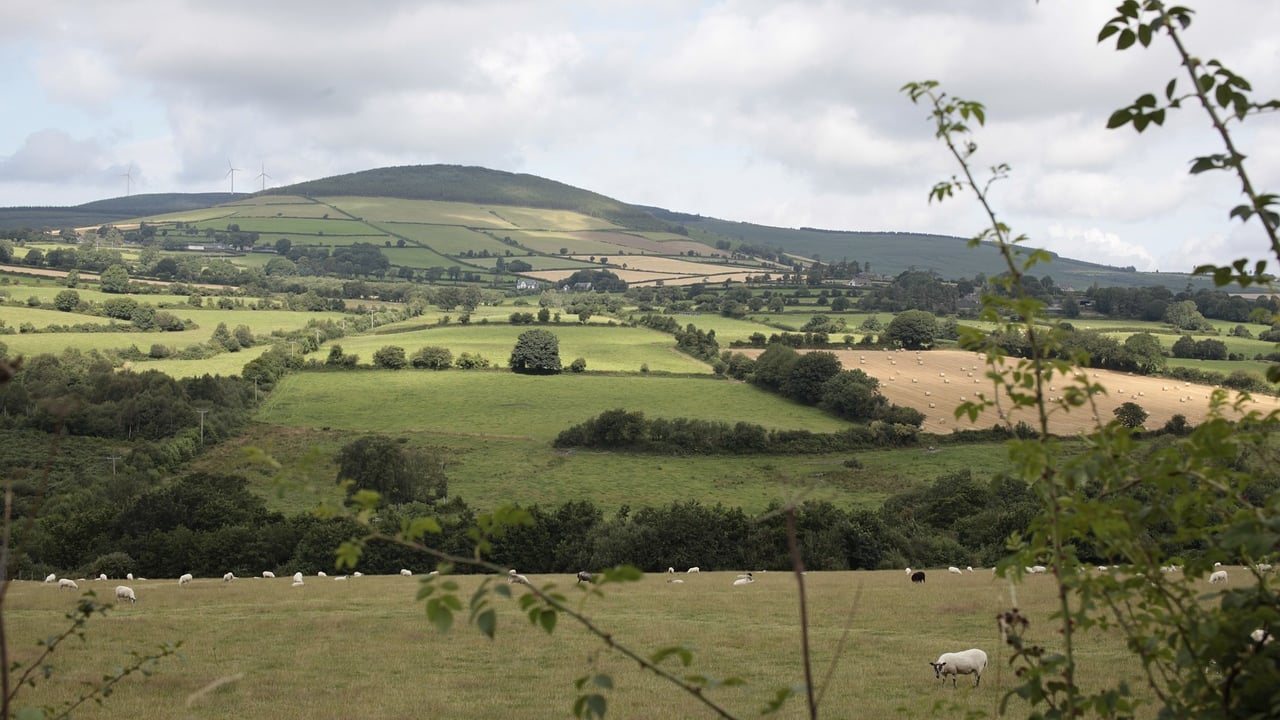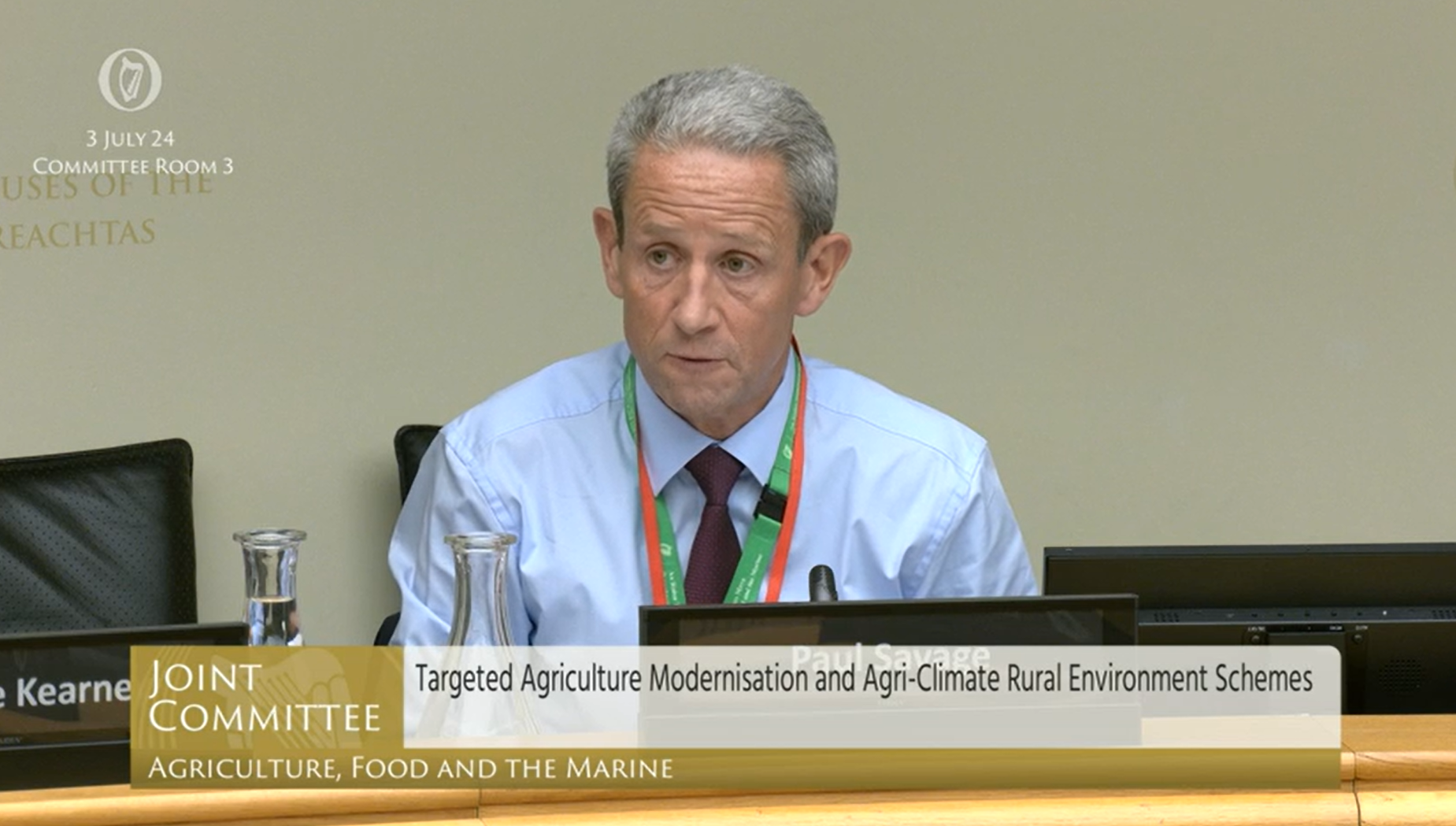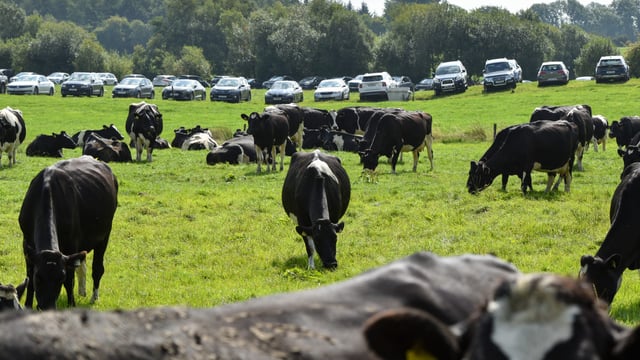6,600 ACRES farmers with 'outstanding debt' - DAFM
The Department of Agriculture, Food and the Marine (DAFM) has said that around 6,600 or 21% of the 31,000 farmers who have received full payment under the Agri-Climate Rural Environment Scheme (ACRES) have an "outstanding debt".
Paul Savage, assistant secretary of rural development and forestry with DAFM, provided the update at the Joint Oireachtas Committee of Agriculture last evening (Wednesday, July 3).
"As we go through the remainder of the payments, we'll see to what extent obviously the debt arises in respect of the remaining cases," he said.
Sinn Féin spokesperson on agriculture, Claire Kerrane asked how the department would recoup this money from these farmers.
The committee was told that a letter will be sent by the department to every participant who has an outstanding debt.
Paul Savage said that farmers can make a payment "over the coming period" by electronic funds transfer, phone, online, cheque or bank draft.
"If they haven't done that, discharged the debt, by the time the next payment comes around in respect of the next scheme, which would be the Areas of Natural Constraints (ANC) scheme in September, then the debt will be recouped from that next payment," he said.
The committee heard that some farmers have already paid off their debt since their interim ACRES payment was issued to them.
"They would have seen that their payment was higher than they might otherwise have got under ACRES," Savage said.
The committee was also told that the the "vast bulk" of outstanding ACRES payments will be made by September.
Paul Savage said that based on a "crude calculation" of an average payment of €5,000/farmer the total payments for the 55,000 ACRES participants would be €275 million.
Based on the €230 million paid out to date, he said that there is around €45 million in payments still outstanding.
He said that the remaining 14,000 ACRES participants will be paid on a fortnightly basis as cases are cleared by the department.
He added that how quickly the department can process the payments will depend "on the nature of the queries that are outstanding".
There are now just under 55,000 active participants in the €1.5 billion agri-environmental scheme.
Advance payments of €88.4 million issued to 19,719 ACRES General participants between December 2023 and February 2024.
Interim payments, totalling €119.5 million, were made to around 23,500 participants who had not received their advance payments by mid-February 2024.
This meant that payments totalling €207.9 million had issued to 44,780 ACRES participants by early March 2024.
Balancing payments began issuing on June 19, with the department stating that 31,081 participants having been paid to date.
Savage said that "the implementation of a new scheme can be challenging, and this has been the case with ACRES".
The scheme "required the development of new administrative and IT systems", along with the introduction of results-based payments.
He said there was a "significant additional workload" for the department, advisors and ACRES Co-operation Project Teams due to scoring land and a higher intake of applicant in tranche 1 "than had been planned".
Savage also said that it is department's intention to issue information to farmers around ACRES scoring in "around two weeks' time".
This will be available through the department's online "agfood" system and will also be sent in writing to farmers.
Savage said that work is ongoing on the introduction of Non-Productive Investments (NPIs) and Landscape Actions, which "will gather pace over the coming months".
He told the committee that under the ACRES scheme 25% of all land under agricultural management in Ireland has been environmentally assessed and scored.
Fianna Fáil Senator Paul Daly raised the issue of agricultural advisors having difficulty with department systems when submitting ACRES data.
Paul Savage said that the department monitors the day-to-day running of systems "very closely".
He said that the department "had issues from time to time in terms of access to systems, functioning of systems", adding that this would happen when new systems are put in place.
"There will be problems from time to time from an IT point of view, it happens in all walks of life. But we do try to resolve those issues as quickly as we can," he said.






